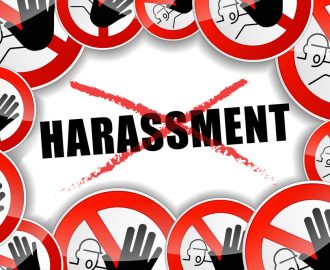Author: Lauren Vie, Esq.
Many boards have taken the position that the board does not have an obligation to address reports of harassment in the community.
Generally, boards try to avoid confrontation and are unsure how to deal with a resident who harasses others. Boards tend to be reluctant to escalate matters and incur legal fees. Some board members are concerned the bully will shift his/her attention and retaliate against the board. They hope the bad behavior will subside on its own and they feel that if the conflict does not involve the board in any way then it is not the board’s place to try to resolve the conflict. It is important for boards to know that they can no longer passively watch a conflict involving harassment play out. Recent federal case law and updates to federal statutes require a board to act when they receive complaints regarding harassment. But what exactly should a board do to safely address a resident who is engaging in harassing behavior?
Once the board learns that a resident is engaging in harassing behavior the board needs to take action. A.R.S. Section 12- 1809 defines harassment as “a series of acts over any period of time that is directed at a specific person and that would cause a reasonable person to be seriously alarmed, annoyed or harassed and the conduct in fact seriously alarms, annoys or harasses the person and serves no legitimate purpose.”
The board’s first action should be to contact the resident and tell them, in writing, that they must cease from engaging in harassing behavior. It is important that the board try to get all communications in writing so the board has written proof that it took steps to address the problem. The resident may prefer to communicate over the phone or in person. If that is the case, the board should keep a written log of phone calls or in person conversations. When the board contacts the resident they need to take a firm position and inform the resident that harassing behavior, whether toward another resident, board member or vendor, will not be tolerated.
Passive or conciliatory board responses only encourage more bad behavior. There are times when intervention by the board can cause the resident to engage in additional bad behavior to make a point. If this occurs the board must take a strong position and ensure that the resident knows significant legal and financial consequences can occur if the bad behavior continues. The board should get the association’s attorney involved if the resident continues to escalate the conflict.
If a board learns that harassment is occurring in the community and the board fails to act there can be legal consequences for that failure. Victims of discrimination and harassment can sue the association for the board’s failure to intervene. If the board is found to have failed to act properly after learning about the harassment the Court can award a judgment against the association and the association would be responsible for reimbursing the plaintiff for the amounts awarded in the judgment.
There have been recent changes in federal law which require a homeowners association to act when a resident who falls within a protected class is harassed in the community. On October 14, 2016, the U.S. Department of Housing and Urban Development (HUD) established regulations requiring all housing providers take steps to end harassment of protected classes. The regulation includes homeowner associations as a housing provider. (Code of Fed. Reg. §100.7(a)(1)(iii).) If a board fails to investigate complaints and take appropriate action, the target of harassment can either sue the association or file a complaint with HUD. These complaints are very costly for the association and can have serious ramifications. The complaints are filed with the Arizona Attorney General and the Attorney General proceeds with the case with little to no investigation. Due to the seriousness of these HUD actions it is best for boards to take action whenever they receive a report of possible harassment.
If the board receives a report or complaint of harassment and the board isn’t sure if the behavior really constitutes harassment, the board should contact the association’s legal counsel. Your counsel will be able to determine if the behavior needs to be addressed. If your counsel determines that the behavior constitutes harassment they can send the resident a cease and desist letter. Many residents immediately stop their bad behavior after receiving a letter from a law firm. If that doesn’t work, the board may need to consider further legal action.
The best way to avoid to escalation of these issues is to address any reports or complaints of harassment quickly and swiftly. Do not be afraid to contact your legal counsel since a misstep in these matters can have serious legal ramifications. All residents, vendors and board members deserve to operate in the community free from harassment and the board should ensure that it does its part to make sure that their community is a place where harassment is not tolerated.

